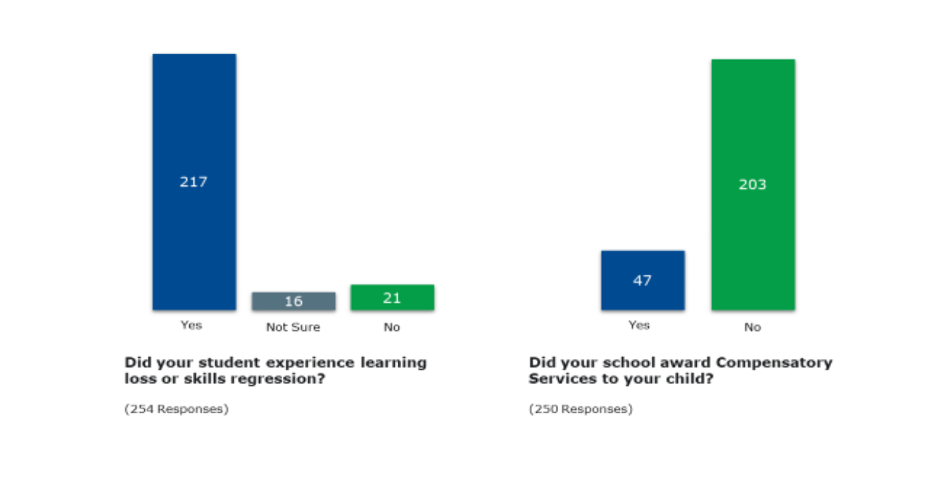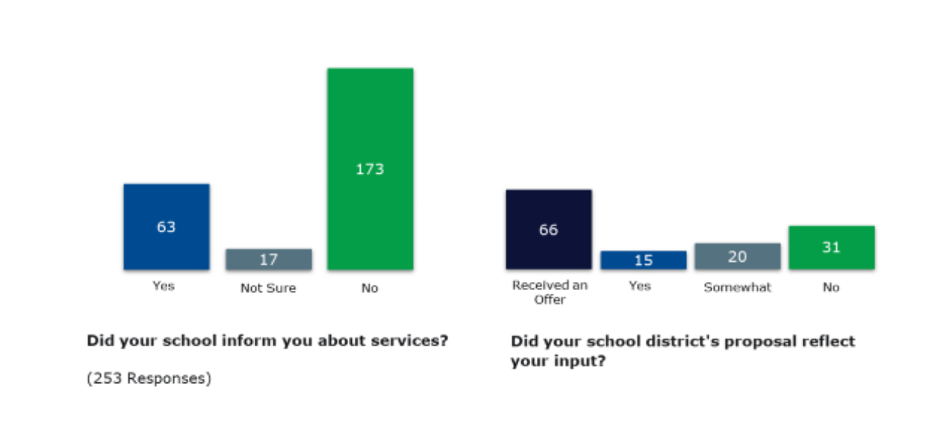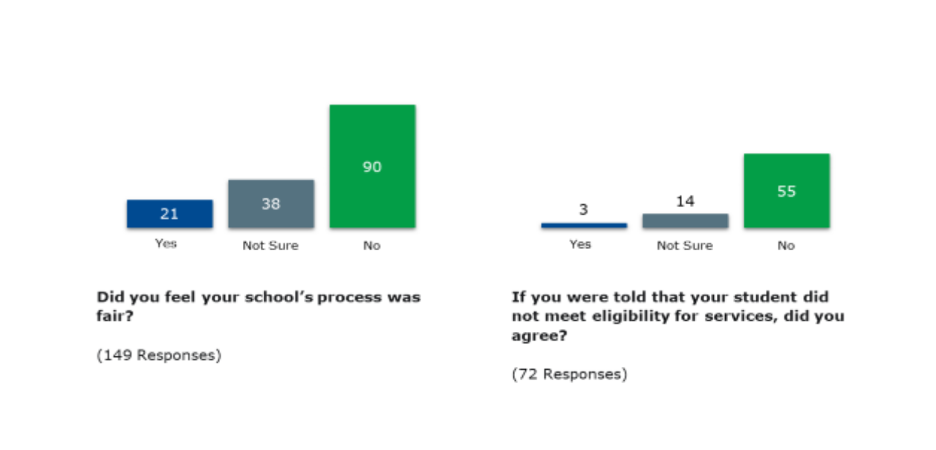COVID-19-related school closures and instructional interruptions resulted in significant disruption of special education and related services to students with disabilities.
The U.S. Department of Education (ED) issued guidance regarding COVID-related compensatory services in March 2020, and additional clarifying guidance in September 2021 including the process for determining and awarding compensatory services in light of a student’s inability to access a free and appropriate education (FAPE) due to school closures and interruptions related to the COVID pandemic. States, too, have issued additional guidance to school districts with further localized information.
To assess the effectiveness of this guidance, and local response in terms of compliance with the IDEA, The Council of Parent Attorneys and Advocates (COPAA) conducted a survey of parents of students protected under the provisions of the IDEA.
Key Findings of the Survey
Finding #1: Very few students with disabilities are benefiting from compensatory services related to COVID, despite evidence of significant impacts and need, and despite federal guidance on the topic.
- While more than 5 in 6 parents (86 percent) reported their students experienced learning losses, regression or slower than expected progress towards learning goals (the main determining criteria to award services), less than 1 in 5 students (18 percent) received any award offer for compensatory services related to COVID.

Finding #2: School districts appear to be ignoring or incorrectly interpreting state and federal guidance on compensatory services related to COVID.
- Parents were not informed about compensatory services. Only 1 in 4 parents of eligible students (25 percent) received information from their school regarding the availability of compensatory services, and few schools shared their process for determining awards with parents (15 percent).
- Failing to follow guidance. Despite guidance that directs schools to seek parents’ input in the determination process, only about one quarter of award proposals (23 percent) reflected parents’ input. Parents also reported that services offered were often not individualized or appropriate for their child as required by guidance, nor were they adequate to offset learning losses.
- Delayed implementation. Despite initial guidance being issued in March 2020, many parents who received an award reported delays or uncertainty as to when services would commence, with 44 percent of surveyed parents reporting they were unsure when services would begin and another 16 percent reporting that services just began this fall.

Finding #3: Parents believe the process of awarding compensatory services was unfair.
- Only one in seven parents (14 percent) felt the process was fair.
- Of those parents informed by their school that their child did not meet eligibility for services, only 4 percent agreed with the school’s determination and nearly half sought to overturn the decision.

Read the full COPAA Survey Report: Compensatory Services Related to COVID-19: Parent Survey Results and Recommendations >>

 .
.